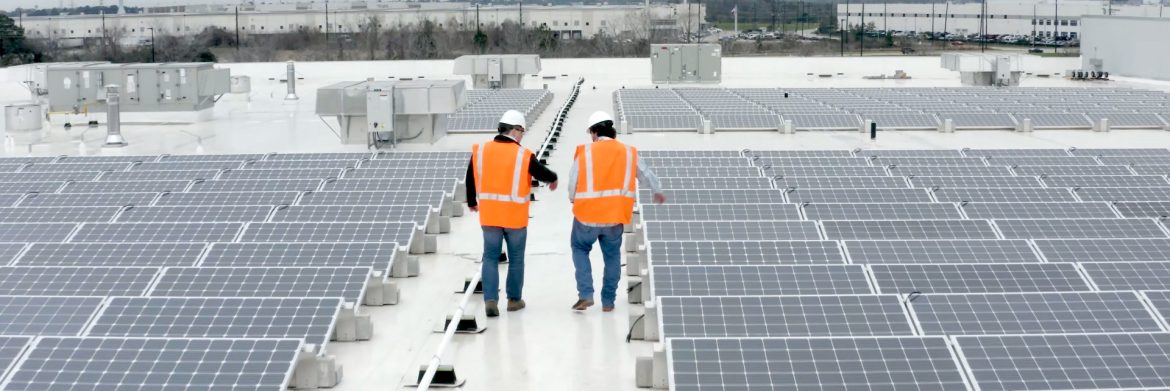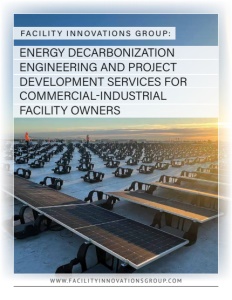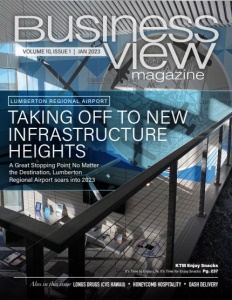Facility Innovations Group
Energy decarbonization engineering and project development services
for commercial-industrial facility owners
Business View Magazine interviews Chris LeVeck, founder and CEO of Facility Innovations Group.
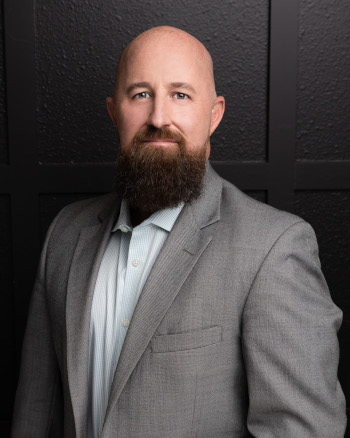
Chris LeVeck, CEO and Founder
It all started for Chris LeVeck with his family’s lighting business.
The founder and CEO of Facility Innovations Group, a leading provider of commercial-industrial energy efficiency and renewable energy solutions, joined his dad’s wholesale lighting business fresh out of college. In short order, he started a new division of the company focused upon improving customers’ energy efficiency.
“20 years ago, I entered the family business and started a new lighting division around energy efficiency,” said LeVeck. “And I was able to build a very successful and profitable division. Eventually, a national lighting supplier recruited me as a business development executive, and with that I relocated from my home state of Ohio to Texas.
“Over time, the lighting industry got commoditized. You could throw a rock and hit a vendor of LED light fixtures. It was a race to the bottom. But one day, after thousands of discussions with corporate customers about energy efficiency, I had one of those aha! moments. I realized that no single energy efficiency solution really solved the emerging challenge of carbon footprint reduction.
“So I started talking not just about lighting but about customers’ energy consumption as a whole. And I knew immediately that I’d hit on something.”
Today, LeVeck’s engineering consulting and project development firm, Facility Innovations Group, exemplifies this more holistic approach to building energy use. The company provides a comprehensive, white-glove experience for its customers, focused upon decarbonization and sustainability.
“These organizations are looking to become more sustainable and lower their carbon footprints,” said LeVeck. “We first help them build a decarbonization roadmap, based upon their portfolio of facilities across the country; the local electric utility rates, the rate structures and the available incentives; and the ages of their energy assets (lighting fixtures, mechanical heating and cooling equipment, etc.). We then pick a pilot facility and do a deep dive into that facility, creating a proposal with detailed energy efficiency improvement recommendations and a financial analysis.”
“Typically, we look first at energy conservation measures within the building envelope,” said LeVeck. “That could be mechanical systems, building control systems, ventilation, lighting, and even the roofing material and color. Next, we start to engineer and model out which energy efficiency solutions will provide them with the best payback and the best opportunity to lower their carbon footprint.”
But you can’t get to net zero with savings alone.
Energy efficiency measures can typically knock about 15-30% off a building’s annual energy consumption, with the higher end of the range more applicable to older facilities, which often have older equipment. For the other 70-85%, Facility Innovations usually turns to solar energy generation and battery energy storage. This is often coupled with fueled generation (typically natural gas) for demand response management, emergency backup power and, increasingly, islanded microgrid operation.
LeVeck explained that an islanded microgrid allows a facility to – quite literally – disconnect from the electric power grid during utility power outages and periods of peak demand. In addition to offering resilience for the facility, a solar microgrid can also benefit the utility power grid, by reducing the amount of power purchased by the local utility from more expensive generation sources during demand peaks.
“We experienced the worst-case power grid failure scenario in Texas, during the winter power outages in February 2021,” said LeVeck. “The grid just shut down, as natural gas pipeline pumps froze, and power was not available for purchase from other regional grids. Those facilities that were self-sustaining – whether with gensets or solar plus battery energy storage – were able to reduce the impact of the outage.” He added that most electric utility plants in North America have converted to natural gas as their primary fuel, so seasonal volatility in natural gas prices can be an additional issue.
Facility Innovations Group focuses on Fortune 1000 companies, and any other organizations with dozens or even hundreds of locations throughout the country.
“They have the appetite to lower their carbon footprint, and achieve energy cost savings,” he said, adding, “we’re able to make a greater impact working with organizations that have a national footprint.”
“Often,” he said, “they don’t realize what it’s going to take to meet their publicly announced objectives for decarbonization and sustainability. They haven’t thought through what decarbonization really means; what it’s really going to cost and the specific measures necessary to get to anywhere near net zero.
“So, that’s their biggest challenge. They don’t have that roadmap. And they usually don’t have the team bandwidth, the subject matter expertise, or the resources allocated to create the roadmap and make the necessary changes. It’s not unusual to see a Fortune 1000 corporation with a new decarbonization and sustainability team of just four or five people.
“That’s our value add. We’re a bolt-on team of subject matter experts and project developers that can get these corporate teams up to speed faster. But unlike a typical engineering consulting firm, we don’t just recommend solutions. We also construct and install the needed energy efficiency and renewable energy improvements, then we measure and verify the results.”
LeVeck said that Facility Innovations Group has seen a significant uptick in demand for the company’s services since the U.S. Securities and Exchange Commission announced proposed new reporting requirements for public companies making decarbonization and sustainability claims.
“The SEC is saying, ‘You can’t say you’re getting to net zero by a certain date unless you can document what you’re doing and how you’re going to reach the goal,’” he said.
Facility Innovations Group believes the SEC’s proposed policy change will filter down to private companies as well, as public companies pressure the vendors in their supply chains to work towards carbon neutrality.
As for what the firm offers, LeVeck said the company looks at a couple dozen different solutions, including high efficiency environmental control systems, heat pump and waste heat water heating, LED lighting, solar energy generation, variable speed motors, demand response programs, carbon trading, retro-commissioning and battery energy storage arbitrage. Retro-commissioning includes resetting vents and controls that may have been tweaked by employees and are no longer working as originally intended.
Facility Innovations Group is also an expert when it comes to navigating tax deductions and credits, often introducing their customers to overlooked savings opportunities.
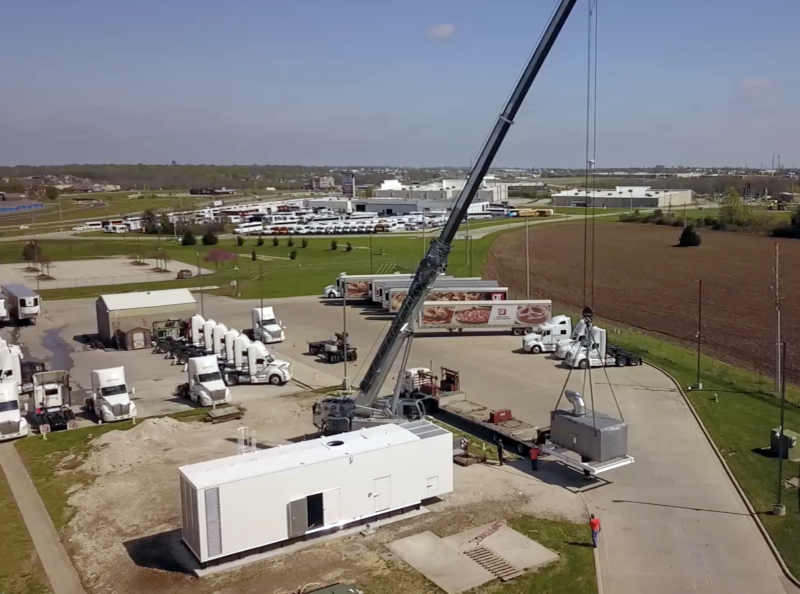
Based in Austin, Texas, Facility Innovations Group has employees in three states and an extended network of subject matter experts throughout the country.
“We’re adding new talent every month,” LeVeck said. “We’re forecasting $50 million in revenue next year. This year, we have $3.6 million currently under construction and another $17.5 million under contract, with a $100 million-plus utility-scale solar farm in active development in South Texas,” he said. The projects include a solar microgrid for a data center in Champaign County, Illinois, and solar projects for a national chain of convenience stores, including solar for the chain’s distribution centers.
LeVeck declines to recommend specific energy improvements or brands, saying, “We are agnostic about specific technologies, products and services in the building energy space. We sit on the side of the facility owner. We choose the solutions we believe make the most sense for each situation. What works best for a steel manufacturing plant is probably not going to be the right mix of solutions for a large office building.”
In the renewable energy space, LeVeck believes site-level microgrids must be an important focus for the future. “Organizations that need resiliency, that value uptime in their operations, don’t want to rely on the local electric power grid because of infrastructure issues,” he said, adding that factors such as increased power demand by electric vehicles, electrification of building energy processes previously fueled with direct fossil fuel combustion, and congestion of electric utility grids virtually ensure increases in brownouts and blackouts.
“Facility managers need to develop contingency plans,” he said. “We can design, engineer and build a local microgrid for them, and then they don’t have to worry about grid reliability issues. That’s the future, I believe.”
As for what the future holds for Facility Innovations Group, LeVeck said the company is constantly fielding inquiries from suitors looking for acquisitions in the energy decarbonization space.
“We closed a very successful seed funding round,” he said, and the company may consider opening a Series A investment round in the coming year.
“Our business model is unique for the middle market,” said LeVeck. “Companies like Ameresco, Siemens and Schneider Electric do what we do for the ‘MUSH’ market – municipalities, universities, state governments and hospital chains – but our primary competitor is usually either an engineering consulting firm that tells you where it hurts – but then doesn’t do anything about the pain – or a single source solution provider: a lighting contractor; a mechanical contractor; or perhaps a solar contractor. We just don’t run into other companies in our Fortune 1000, middle market space that take our holistic approach.”
Sounds like a fast-growing business with a pretty bright future.
On a personal note, LeVeck adds, “The amazing acceleration and growth of the market for decarbonization initiatives is what drives me. We are building this company by hiring very smart engineers and subject matter experts and we’re helping our customers build a better future. It’s really exciting to come to work every day.”
AT A GLANCE
Facility Innovations Group
What: A leading provider of commercial-industrial energy efficiency and renewable energy solutions
Where: Headquarters in Austin, Texas, works nationally
Website: www.facilityig.com
PREFERRED VENDORS
Rebate Bus – www.rebatebus.com
Rebate Bus: Always one step ahead of the competition with a complete end-to-end utility rebate solution
Cementing itself as one of the leading rebate databases in the US and internationally, Rebate Bus has made its mission to offer what the competition cannot; a fully integrated front end to back-end rebate analytical and processing program that can identify the best rebates on a range of utilities for its valued corporate clients. With a primarily commercial focus, Rebate Bus offers rebate analytics to its customers to help reduce project costs by capturing the incentives identified in the Rebate Bus database.
Using state-of-the-art technology, Rebate Bus’s data collection and rebate processing services are grounded in its years of combined experience in the utility and lighting industry. The team at Rebate Bus outperforms its competition in both managing projects for its customers and analyzing the data to expertly pinpoint any rebates that customers may be eligible for.
Established in 2016, Rebate Bus has held true to its mandate over the years; to be the foremost expert on incentive data and incentive processing for the North American market. The expert team with an impressive background in lighting divides their time between analytics and processing on both the commercial and residential side, providing truly holistic technical expertise for a wide range of clients.
With an expansion in mind, Rebate Bus is exploring other avenues beyond traditional utility rebate analytics and dipping its expertise into other rebate markets. Reviewing over 3,000 utility programs per quarter, the company is expanding in rebate process and data collection services in the process equipment, HVAC and compressed air markets. Future branches of research will also include identifying and capturing rebates for wind and solar energy projects.
By advising its customers to really become familiar with which utility company they may be using and then utilizing the raw data provided by the Rebate Bus software platform, clients will have both the knowledge and understanding of the most cost-effective routes in the realm of utilities before embarking on a given project.
With a view to 2023, the team at Rebate Bus is revving up its platform and following the lead of industry diversification by opening up its business model to new markets and expanding its product offering. With the addition of weekly utility-based information webinars, the future inclusion of a state-of-the-market trending analysis, and streamlining its web interface and search tools, Rebate Bus will continue to take the lead over other rebate companies while providing top-tier ongoing and future analytics and solutions for its growing portfolio of clientele.
